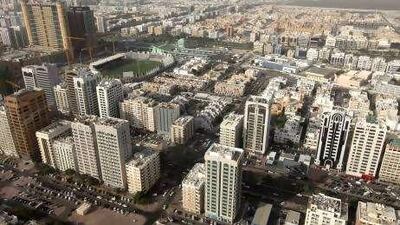DUBAI //Rents in Abu Dhabi have fallen by up to 15 per cent in the past three months, according to a property report published yesterday. Prospective tenants have greater bargaining power because more homes are coming on the market, the Middle East property firm Asteco Property Management said. About 4,500 apartments have been built and 8,000 more will be ready by the end of the year, the report said.
But the firm said the fall in rents was not steep enough to reverse the flow of tenants from the capital to Dubai, where property remains much cheaper. Still, the report's authors painted the trend as positive for those who have suffered in a market short on housing, long on monthly outlays and difficult because of landlords unwilling to compromise on rent. "The Abu Dhabi real estate market is in a period of transition, moving away from an under-supplied, landlord-controlled market to one with improving quality and choice offering tenants more negotiating power," said Elaine Jones, the chief executive of Asteco.
The impact of having more units available, Mrs Jones said, would "continue to put downward pressure on rents, particularly older stock, which should be interpreted as a healthy move for an improvement in business". As for villas in areas popular with expatriates such as Al Reef, rents have fallen by as much as 20 per cent. In more established areas typically inhabited by Emiratis, prices fell by eight per cent at most, the report said.
However, the easing of rental rates was unlikely to be enough to reverse the trend of people choosing to commute to the capital from Dubai, where rents are still relatively low, said Paul Maisfield, the general manger of Asteco's Abu Dhabi office. "We have not witnessed significant numbers of commuters looking to move back to Abu Dhabi, but with more quality supply to come within the next six months on Al Raha Beach and Reem Island that could well change, subject to education, health and lifestyle infrastructure also being available," he said.
Most relocations to areas in Abu Dhabi where rents had begun falling had occurred from within the capital, said Mr Maisfield. He added that it was "a healthy sign for the market that enquiry levels have increased due to improved availability and a decline in rents". Others in the property business agreed that the flow of commuters to Abu Dhabi from Dubai, which tripled in the past year, was likely to continue until rent options in the capital equalled those elsewhere.
"Some people still think that cheaper rents in Dubai and greater amenities there means they're happy to do the commute, as opposed to living in Abu Dhabi and paying relatively higher rates," said Harry Goodson-Wickes, the associate director for the Abu Dhabi branch of the international real estate firm Cluttons. Although "there could be a point when people say, 'OK, we're happy to move to Abu Dhabi now'," prices in Dubai and the capital would first have to be closer to each other, he said.
That may take some time. The oversupply of real estate in Dubai would leave roughly 44,000 homes empty and drag down prices there a further 15 per cent by the end of the year, according to a Bank of America Merrill Lynch report released in May. Prices in Dubai have fallen sharply from their highs two years ago, drawing into the emirate those who previously found it too expensive. The movement has been so dramatic, the Asteco report found, that it is largely responsible for declines in rental rates of as much as 19 per cent in Al Ain over the past quarter as landlords scrambled for tenants.
Because so many flats were available in Dubai, parity in rents between Dubai and Abu Dhabi, Mr Goodson-Wickes said, would likely take a "couple of years". Others believed the magnitude of the Dubai housing glut would make achieving parity even longer. "The overhead of supply in Dubai is quite well embedded and the price differential [between Dubai and Abu Dhabi] continues to be quite significant," said Blair Hagkull, the Middle East and North Africa managing director at Jones Lang Lasalle, another property firm. Although he said "the Dubai market right now is one that is in search of the bottom, our view is that it's getting closer".
@Email:hnaylor@thenational.ae

